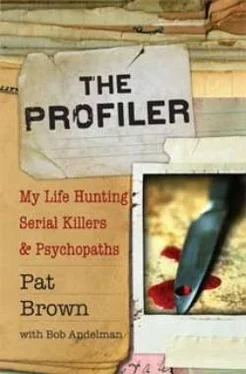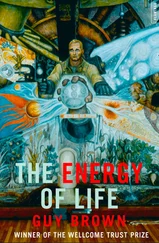What was I to do? I never envisioned driving back to the house with nothing accomplished, except maybe Walt finding out I had been in his room. I had no police to protect my family or me. I had no idea if I was totally right, or very wrong. Was I returning home to stay the night in the same house as a vicious killer, or was I just completely insane?
When I arrived home, I could hear Walt’s footsteps upstairs as he moved around his room. I felt clammy as I thought about the trash bag. I should take the children and go to a hotel for the night, but what was the point of being so drastic when the police detective didn’t seem to find any reason to suspect Walt? I felt numb, trapped in a surreal world. I left the kitchen, crossed the dining room, climbed the stairs to the second floor, and went to my children’s room. I peeped in and they were asleep, looking peaceful under their covers, surely believing that their world was safe and secure. I went into my bedroom, closed the door, and told my husband what happened at the police station.
Tony seemed annoyed with me.
“See? You were being ridiculous. The police know their job and they would be all over Walt if they saw any reason to suspect him. By the way, I told Walt he had to go and he said he would leave in the morning.” He abruptly turned away from me. “There goes June’s rent money,” he muttered somewhat resentfully. Then he immediately went off to sleep.
I, on the other hand, spent the night on my side of the bed with eyes wide open and a butcher knife clutched in my hands. Deep down inside, I still believed I was right.
The next day Walt put all his belongings in two Hefty bags and drove his illegal car down the driveway. He left the trash bag crowned with the pizza boxes untouched.
It would be five years before I started investigating him, and six years before the police would finally bring him in for an interview. Although my career as a profiler was beginning, I never imagined, as I watched the car disappear from sight, that this was where my life was heading.
Sometimes we all wonder, how did I end up where I am in life?
I spent the first half of my childhood in Ridgewood, New Jersey, the kind of perfect town one finds in picture books. My family’s colonial home with its thick pillars stood on a small walled hill and had a circular staircase at its center that was perfect for three girls to chase one another up and down until their mother got a migraine.
My father, Harry, was a civilian working with the Department of Defense. He worked with all kinds of big government projects, and I never quite knew what he did when I was growing up. But he came home every night and was a good provider and a wonderful father.
My mother, Shirley, stayed home, painted watercolor landscapes, and baked great chocolate chip cookies. We were a really traditional family-Mom, Dad, my two older sisters, and me. My parents never fought, and even we girls did little more than occasionally tattle or give one of the others the silent treatment. I never encountered drinking or drugs or violence.
SOME PEOPLE SAY to understand someone, you have to think like them. I don’t know that much in my life prepared me for psychopathy; my family seemed healthy and happy. No one lied and no one cheated.
I was nine when we moved south to Virginia. I didn’t much care for the area but I didn’t have much to complain about either. We lived in a wealthy neighborhood and I went to an excellent school. I never heard about drugs or anybody getting pregnant. I didn’t hear about any crimes being committed save the one that was committed against me.
When I was twelve years old, I was in a dark fun house, winding my way through behind my friend Sheri, when suddenly someone grabbed me from behind. I broke free, panicked, ran, slammed into a wall, ran, slammed into another wall, and then he caught me again. I felt his hands go inside my clothing and touch me on my private parts and then I broke free again. This time I made it to the exit.
“What’s wrong with you?” Sheri asked me. “You look like you’ve seen a ghost!”
I was pale and shaky. But I told her nothing was wrong and I went home and forgot about it. Some would say that any girl would have been traumatized but I chalked the event up to being in the wrong place at the wrong time, just the girl who happened to be in front of a creep. I didn’t report it because it was embarrassing to talk about, but I didn’t take it personally either. I just shrugged. I come from a logical family who told me not to make mountains out of the molehills one encounters in life. I carried on as if nothing had happened.
I grew up in a land of musicals. My father loved light opera, and I became a fan of Brigadoon. I bought all the Broadway musical albums. I was probably the only teenager who was in love with crooner Robert Goulet. Everybody else was into the Beatles and the Monkees, and I was in love with Robert Goulet.
I wasn’t terribly popular, which might explain why I wasn’t aware of the darker side of being a teen. In the summers, I worked with children-some blind and some blind and deaf-at the Columbia Lighthouse for the Blind. I learned how to read Braille and to guide a blind person with my arm. One of my favorite Christmas presents was a Perkins Brailler that typed each letter with six clacking keys. I read books about Helen Keller; in the back of one was a page with the letters you can make with your fingers and I started making words with my hands under my desk as the teacher gave her lectures.
I started to read Sherlock Holmes and The Saint series. I loved the Robin Hood of Modern Crime. He always outwitted the bad guys…and the police…and I imagined he was a bad-boy version of Robert Goulet. These books were probably the only evidence in my childhood of any fascination with criminals and criminal behavior, and I don’t think I was interested in that as much as I was in the puzzles the stories presented. I liked the challenge of trying to figure stuff out. Most of the time I did crossword puzzles, jigsaw puzzles, and cryptograms. And I read James Michener novels because I wanted to see the world.
I always said that as soon as I was old enough, I’d travel overseas. When I was five I refused to go out and play in the snow because I was warm and comfy watching Tarzan swing through the jungle. I wanted to see that jungle. At five, I was already planning my trip to Africa.
I can’t speak for my sisters, because as the youngest of three girls my parents may have felt they’d seen it all by the time I became a teen, but I was largely considered the wild one. Because the same girl who loved musicals and Robert Goulet also learned Korean karate. I was one of the first students of the Jhoon Rhee Institute of Tae Kwon Do in Washington, D.C., and my first boyfriend, Howard Chung, was the owner’s nephew.
I learned how to eat with chopsticks and cook some Korean food. I would take a bus into D.C. for lessons and spend all afternoon and evening there. I was invited to be in Jhoon Rhee’s first film-a movie no one remembers-and I was so excited! I would be a karate star and I would get to see Korea! Then some guy, a brown belt who should have known better, kicked me in the ribs, breaking several, and I was forced to take a few months off. When I went back to class, I broke the cardinal rule of sports-I didn’t warm up. I jumped right back in like I hadn’t been slumming for weeks and I threw a roundhouse kick really high, way over my opponent’s head, and that did it-I shredded my back thigh muscle. I lost my first and last movie role and another blonde went to Korea.
After high school, I attended Northern Virginia Community College and studied cultural anthropology. My professor, Dr. Tom Larson, who has written a couple of books on the cultures of Botswana, was taking a group to Togo, Africa, that summer, and I jumped at the chance to join them. I worked at a garden shop and saved all my earnings to pay my way.
Читать дальше












